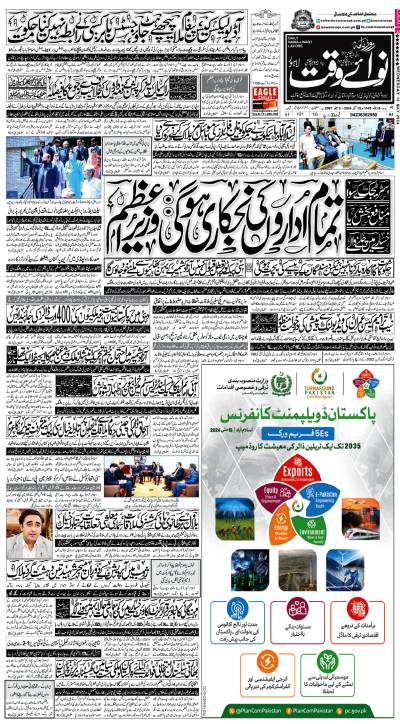“We keep on deceiving ourselves in regard to our faults, until we at last come to look upon them as virtues.”- Heine
As the next general election in Pakistan draw near, a debate has erupted as to whether or not it will be held on schedule. Against this backdrop, the leadership of the two political parties, the PML-N and the PTI, has warned the government that if the general elections are postponed, it would lead to serious consequences for the country. PML-N Quaid Mian Nawaz Sharif has gone to the extent of saying that it would result in a deadly blow to Pakistan’s fledgling democracy. He maintained that with the present performance of the federal government and its coalition partners, it may not be possible for them to face the people and, therefore, the polls might be delayed. On the other hand, PTI Chairman Imran Khan has also warned the government that in case the elections are cancelled, or for that matter rigged, it would mean chaos and bloodshed in the country. According to him, the decision by the PPP to hold local government elections in Sindh “were geared towards paving the way for the rigging of the next general elections.” Several other parties have also demanded that the elections should be held within the stipulated period, despite the fact that several PPP leaders have categorically stated that they would be held in time. They have also assured that the opposition and other stakeholders would be consulted on the issue and that the PPP was in no mood to initiate the electoral process unilaterally. Indeed, the unanimous appointment of the Chief Election Commissioner, Justice (retd) Fakhruddin G. Ibrahim, gives enough proof of their sincerity. The question, however, is: why is this vociferous debate taking place? The answer is quite simple: while the PPP and its coalition partners stand to gain the most, if the elections are held in time, the opposition parties, including the PML-N, the PTI and some other regional groups that remain divided, may not be able to garner enough support. While the PML-N’s position remains stable and would most likely win a sizeable number of seats in the upcoming elections, in spite of the fact that its power base in some urban centres of Punjab will be dented by PTI; both the parties’ are looking for electoral alliances that will give them the required numerical strength to form the government. Presently, the deep divisions apparent in the opposition parties only suit the electoral prospects of PPP and its coalition partners. Conversely, if good performance is the criterion to win the elections, then surely the seats are likely to be divided in such a way that it will become all but impossible even for a coalition government to function as a stable entity. Therefore, the political parties demanding that the elections should be held according to schedule do not want the PPP-led government to create favourable conditions that would help it on Election Day. These conditions can be created by utilising the resources that are available with the government to improve the living standards of the masses. At the moment, there is no hope for betterment of the people due to inflation, unemployment, gas and energy loadshedding, etc. Also, the PPP’s recent decision to generate 30,000 jobs at the federal level is not likely to help alleviate the sufferings of the poor. Likewise, the decision by the Punjab government to employ nearly 80,000 people in different government departments will not be enough to jumpstart the economy, which is crawling at a painful 2.7 percent. In spite of all these drawbacks, the only hope is that the will of the people is respected and whoever wins the polls must be allowed to run the affairs of the state. While several conspiracy theories about the mode of elections and even interim setup that are circulating in the country have died down, the danger that another adventure may be in the offing cannot be entirely ruled out. There are some who suggest that to pull Pakistan out of its present problems, it is essential that a stable and strong interim setup must be established. While others advocate that in case the judiciary is assigned the task to run the state’s affairs, it would be all honey and milk. So, it is time the leadership showed political sagacity so that democracy could develop in Pakistan. One hopes that the politicians will realise their responsibilities and make efforts so that all misgivings can be removed once the general elections are held and a peaceful transfer of power takes place. Even in case of a fractured mandate, hopefully, they would rise above petty self-interest and work in the best national interest by safeguarding not only the institution of democracy, but also the interest of the people. At present, there is no reason why the next general elections should be delayed because in case that is done, it might once again unleash the forces of evil that will leave no winners in the end.
The writer has been associated with various newspapers as editor and columnist. At present, he hosts a political programme on Pakistan Television.Email: zarnatta@hotmail.com





